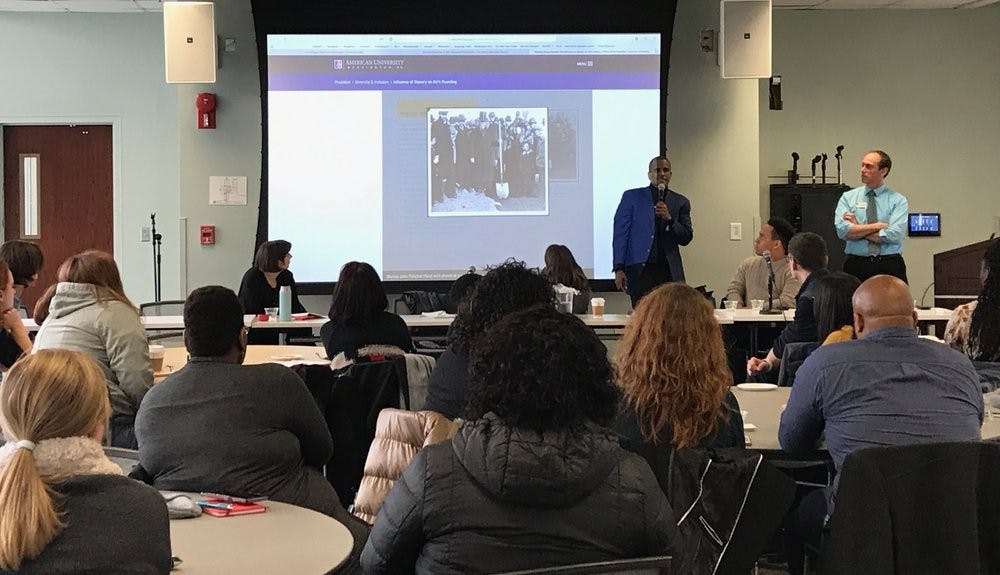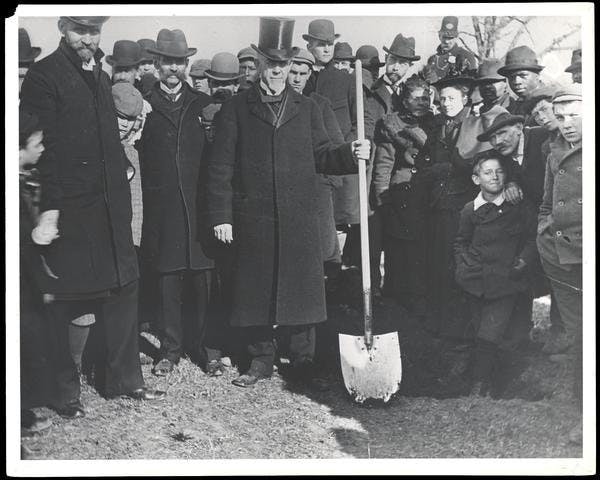BY ZSHEKINAH COLLIER
"It's more than a hope, even though I don't ever know where things are going or how they're going to happen, we have to say it definitively. This is going to keep going and it is going to be passed on and it is now in the life of AU," said Bette J. Dickerson, a member of the Working Group on the Influence of Slavery on American University and Interim Assistant Vice President of Campus Life.
On Jan. 30, American University held a community roundtable in McDowell Formal Lounge, to share the working group's findings on how slavery impacted AU and to discuss possible recommendations and suggestions to acknowledge AU's history.

Nickolaus Mack, a current senior, brought this topic to the attention of the AU community in Feb. 2018 through his opinion piece written in The Eagle, addressing why the annual Founder's Day Ball should not be held at the National Museum of African-American History and Culture. Mack argued that the university should have chosen a different location for the ball based on AU's historical ties to slavery.
The working group started in the spring of 2018 and after months of dedicated research, they found and reported that although AU was founded about 30 years after slavery was abolished in Washington D.C., AU still benefited from the institution of slavery. The land, where the campus now stands, once belonged to families who owned slaves on the property. The founder of AU, Rev. Bishop John Hurst inherited two slaves from his father after his death. The group was able to discover records stating one of the slaves was Thomas King, but records on the second slave may have been destroyed in a fire. Additionally, American University played a role in the displacement of Black families in Northwest D.C. in areas such as Reno City and Tenleytown, mainly due to the presence of developers from the construction of the campus.

Bishop John Fletcher Hurst with shovel at groundbreaking of College of History, Hurst Hall, 9 March 1896
American University Archives
At the event, AU community members suggested renaming an office or building on campus, such as the "President's House," or the Critical Race, Gender, and Culture Studies Collaborative that houses the African American and African Diaspora studies major and minor after Thomas King and a scholarship in his name. Members of the community also suggested incorporating this information into the AU curriculum through the AUx program, Eagle Summit, Welcome Week and Founders Week.
Rafael Cestero, a sophomore and Director of Diversity, Equity and Inclusion for AUSG, said, " just having that knowledge will change some of the things and some of the way they [students] think about how they walk around this university and some of the actions and things they partake in at this university."
The working group encourages faculty, staff and students across campus to do research, share knowledge and to have conversations about AU's relationship to slavery, so we can continue to expand the story and history of American University.


